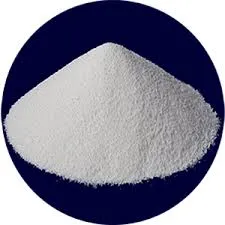- Afrikaans
- Albanian
- Amharic
- Arabic
- Armenian
- Azerbaijani
- Basque
- Belarusian
- Bengali
- Bosnian
- Bulgarian
- Catalan
- Cebuano
- Corsican
- Croatian
- Czech
- Danish
- Dutch
- English
- Esperanto
- Estonian
- Finnish
- French
- Frisian
- Galician
- Georgian
- German
- Greek
- Gujarati
- Haitian Creole
- hausa
- hawaiian
- Hebrew
- Hindi
- Miao
- Hungarian
- Icelandic
- igbo
- Indonesian
- irish
- Italian
- Japanese
- Javanese
- Kannada
- kazakh
- Khmer
- Rwandese
- Korean
- Kurdish
- Kyrgyz
- Lao
- Latin
- Latvian
- Lithuanian
- Luxembourgish
- Macedonian
- Malgashi
- Malay
- Malayalam
- Maltese
- Maori
- Marathi
- Mongolian
- Myanmar
- Nepali
- Norwegian
- Norwegian
- Occitan
- Pashto
- Persian
- Polish
- Portuguese
- Punjabi
- Romanian
- Russian
- Samoan
- Scottish Gaelic
- Serbian
- Sesotho
- Shona
- Sindhi
- Sinhala
- Slovak
- Slovenian
- Somali
- Spanish
- Sundanese
- Swahili
- Swedish
- Tagalog
- Tajik
- Tamil
- Tatar
- Telugu
- Thai
- Turkish
- Turkmen
- Ukrainian
- Urdu
- Uighur
- Uzbek
- Vietnamese
- Welsh
- Bantu
- Yiddish
- Yoruba
- Zulu
Nov . 27, 2024 13:42 Back to list
Dosage Guidelines for Ivermectin Injection in Veterinary and Human Use
Ivermectin Injection Dosage An Overview
Ivermectin is a widely used antiparasitic medication that has gained significant attention in recent years, particularly due to its potential applications beyond its traditional uses. Originally developed to treat parasitic infections in animals, ivermectin has been effectively utilized in humans to combat various parasitic diseases such as lymphatic filariasis, onchocerciasis (river blindness), and strongyloidiasis. With the advent of the COVID-19 pandemic, ivermectin was also explored for its potential antiviral properties, although its efficacy in this regard remains a subject of ongoing research and debate.
Understanding Ivermectin
Ivermectin belongs to a class of drugs known as anthelmintics, which are designed to eradicate parasitic worms and other parasites. It works by binding to specific ion channels in the parasites, leading to paralysis and death. The drug has a high safety profile and is generally well-tolerated, making it a popular choice for treating various parasitic infections.
Dosage Forms and Administration
Ivermectin is available in several forms, including tablets, topical creams, and injectables. The injectable form of ivermectin is primarily used in veterinary medicine for the treatment of parasitic infections in animals. However, in human medicine, oral formulations are more common. It’s essential to highlight that any use of ivermectin should be guided by appropriate medical advice and local healthcare regulations.
When discussing ivermectin injection dosage, it is crucial to reference the standard guidelines provided by healthcare authorities, including the World Health Organization (WHO) and the Centers for Disease Control and Prevention (CDC)
. These guidelines take into consideration the severity of the infection, the specific condition being treated, and patient-related factors such as weight and overall health.General Dosage Guidelines
ivermectin injection dosage

In humans, the dosage of ivermectin varies based on the specific type of infection being treated. The general recommended dosages for oral administration often range from 150 to 200 micrograms per kilogram of body weight, taken as a single dose. For example, in cases of lymphatic filariasis or onchocerciasis, the treatment may be given as a single oral dose, with periodic follow-up doses depending on the disease’s prevalence in the region.
For injection, although less commonly used in humans, veterinarians typically administer ivermectin at dosages ranging from 1 to 2 mg per 10 kg of body weight, injected subcutaneously or intramuscularly. However, administering ivermectin by injection in humans is not a widely accepted practice and should only occur in clinical trials or specific research settings.
Safety and Precautions
Safety is a paramount concern when considering ivermectin dosage. Although generally safe, ivermectin can cause side effects, particularly at higher doses or in those with certain health conditions. Common side effects include dizziness, nausea, diarrhea, and abdominal pain. More severe reactions can occur, particularly in patients with heavy parasite loads, leading to an inflammatory response known as the Mazzotti reaction.
It is critically important for healthcare providers to assess each patient’s history and condition before prescribing ivermectin. Patients should be screened for potential drug interactions, particularly if they are on medications that may affect liver function.
Conclusion
Ivermectin remains a vital tool in the arsenal against parasitic diseases. Understanding the proper dosage and administration method is essential for maximizing its efficacy while minimizing the risk of side effects. While further investigations into its broader applications, such as antiviral treatment, continue, adherence to established dosage guidelines is necessary to ensure patient safety. Always consult healthcare professionals for advice tailored to individual health needs and circumstances. As our understanding of ivermectin evolves, so too will the protocols surrounding its use, ensuring that this important medication remains safe and effective for those who need it most.
-
Guide to Oxytetracycline Injection
NewsMar.27,2025
-
Guide to Colistin Sulphate
NewsMar.27,2025
-
Gentamicin Sulfate: Uses, Price, And Key Information
NewsMar.27,2025
-
Enrofloxacin Injection: Uses, Price, And Supplier Information
NewsMar.27,2025
-
Dexamethasone Sodium Phosphate Injection: Uses, Price, And Key Information
NewsMar.27,2025
-
Albendazole Tablet: Uses, Dosage, Cost, And Key Information
NewsMar.27,2025













